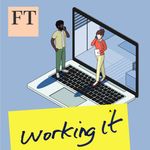What the rise of ‘supercommuters’ tells us about work
During the Covid-19 pandemic, millions of workers got used to working at home. Some moved hundreds of miles from the cities where their companies were based to live a cheaper and less stressful life. But now that in-office work is back, a rising number of people are looking to eat their cake and have it, too, combining good jobs in urban centres with a peaceful rural life. To make that work, they have to ‘supercommute’, travelling for hours on end to get to the office. But why do they do it? Isabel speaks to Mo Marikar, who commutes from North Wales to London, and Max Dawes, who takes a ferry, bus, train and metro from the Isle of Wight to London – a four-hour commute. She also talks to FT journalists Emma Jacobs and Andrew Hill to find out how the commute has changed since the pandemic.
Want more? Free links:
The rise of the super-commuter
Commuting is back — but not as we knew it
What commuters get up to when they no longer commute
Read a transcript of this episode on FT.com
Hosted on Acast. See acast.com/privacy for more information.
